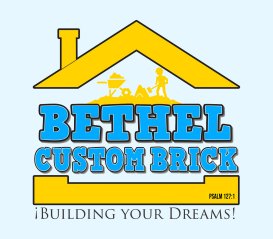Maintaining the beauty and stability of brick structures requires a keen understanding of masonry services like brick repointing and brick replacement. Both are vital for preserving the structural integrity and visual appeal of your brickwork, but they address different issues. In this guide, we’ll break down the differences between brick repointing and brick replacement, so you can choose the best option for your needs.
What is Brick Repointing?
Brick repointing is a process that involves removing and replacing damaged or deteriorated mortar between bricks. Over time, weather, moisture, and aging can cause mortar to crack, crumble, or wear away, weakening the bond that holds the bricks together. Repointing restores the structural integrity of brickwork and prevents water from seeping into gaps, which could lead to further damage.
Signs You May Need Brick Repointing:
- Crumbling or missing mortar
- Gaps or shifting between the bricks
- Loose bricks due to mortar deterioration
- Visible signs of moisture or water infiltration
Benefits of Brick Repointing:
- Enhanced Durability: Repointing extends the life of your brickwork by reinforcing the mortar.
- Improved Water Resistance: Fresh mortar prevents water from seeping in, reducing the risk of water damage.
- Cost-Effective Maintenance: Repointing is typically less expensive than full brick replacement and can address minor to moderate mortar issues without disturbing the brick structure.
When to Choose Brick Repointing:
If the primary issue is deteriorating mortar but the bricks themselves remain intact and undamaged, repointing is the best option. This process can restore stability to the brick wall, prevent further damage, and improve the overall look of the structure.
What is Brick Replacement?
Brick replacement involves removing and replacing damaged or degraded bricks. Over time, bricks may crack, spall, or lose their structural integrity due to freeze-thaw cycles, water damage, or natural wear. Replacing compromised bricks prevents further damage from spreading and ensures the longevity of the entire brick structure.
Signs You May Need Brick Replacement:
- Cracked, crumbling, or spalling bricks
- Deep, structural cracks in individual bricks
- Discoloration or stains from water damage
- Bulging or shifting bricks due to severe structural issues
Benefits of Brick Replacement:
- Improved Structural Integrity: Replacing damaged bricks strengthens the overall structure and prevents further weakening.
- Enhanced Aesthetic Appeal: New bricks improve the appearance of your brickwork, especially in cases of noticeable damage or discoloration.
- Long-Term Solution: Unlike repointing, which primarily addresses mortar issues, brick replacement targets the core structural problems within the bricks themselves.
When to Choose Brick Replacement:
Brick replacement is the best solution when bricks themselves are compromised. This process is more labor-intensive than repointing but is essential for addressing damaged bricks that could compromise the stability of the entire structure if left unattended.
Brick Repointing vs. Replacement: Key Differences
| Aspect | Brick Repointing | Brick Replacement |
|---|---|---|
| Purpose | Repairs deteriorated mortar between bricks | Replaces damaged or cracked bricks |
| Scope of Work | Involves removing old mortar and adding new mortar | Involves removing and replacing individual bricks |
| Ideal for | Addressing mortar gaps, loose bricks, minor repairs | Severe brick damage, cracks, spalling |
| Cost | Generally more affordable and less invasive | More labor-intensive, may be costlier |
| Longevity Impact | Extends life by reinforcing mortar | Improves structural integrity by replacing bricks |
| Aesthetic Benefit | Restores clean mortar lines, preserving original look | Revitalizes the look by replacing damaged bricks |
How to Decide Between Repointing and Replacement
Determining whether to opt for repointing or replacement depends on the specific condition of your brickwork. In general:
- Choose Repointing for issues primarily related to mortar deterioration. Repointing is an effective way to reinforce brickwork and maintain its appearance without the need for extensive intervention.
- Choose Replacement when bricks themselves show signs of significant damage. Cracked or spalling bricks require replacement to ensure the stability and safety of your structure.
The Importance of Professional Assessment
While some minor brick or mortar issues might seem manageable, it’s essential to consult a masonry professional for an accurate assessment. They can inspect your brickwork and recommend the most effective solution, whether it’s repointing, replacement, or a combination of both.
Preserving the life and beauty of your brick structures starts with understanding their unique maintenance needs. Whether through repointing or replacement, investing in the proper care ensures your brickwork stands strong and looks great for years to come.


